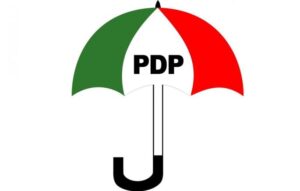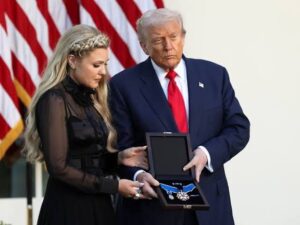In a significant diplomatic move, the United States government has revoked the visas of six foreign nationals after they publicly celebrated the assassination of conservative commentator Charlie Kirk.
Charlie Kirk, a well-known figure in American politics, is the founder of Turning Point USA, a conservative advocacy group. Known for his outspoken support of right-wing political views, Kirk has gained prominence through his vocal opposition to liberal policies and his influence on young voters, particularly in the realm of American colleges.
His work has garnered both fervent supporters and detractors, with some people viewing him as a crucial voice in conservative politics and others criticizing his divisive rhetoric.
Visa Revocation and the US President’s Action
The US president, in a stern rebuke, has ordered the revocation of the visas of six individuals from various foreign nations, following reports that they had publicly applauded the alleged assassination of Charlie Kirk.
The US government expressed that such actions “undermine the values of democracy” and fostered an environment of hate. The move came after several individuals, who were identified through their social media posts, made statements celebrating Kirk’s demise, which was falsely rumored to have occurred in recent days.
In a statement, a White House official said, “The United States will not tolerate foreign nationals promoting violence or inciting hatred against American citizens. We will continue to ensure that individuals who engage in such behavior do not have the privilege of visiting our country.”
While the president’s office did not immediately provide further details on the specific identities or nationalities of the individuals involved, it was made clear that the revocation of visas was a necessary step in safeguarding US values.
Reactions from Foreign Nationals and Global Outcry
The six individuals whose visas were revoked have reacted with a mixture of defiance and disbelief.
One of the individuals, who remains unnamed, responded via social media saying, “This is a direct attack on freedom of speech. I only expressed an opinion, and now my right to visit the US has been revoked.”
Another individual, who allegedly resides in Europe, expressed anger in an online interview, stating, “The US has no right to dictate how people abroad speak or what they believe.
This is a clear violation of personal freedoms.” The individuals have vowed to challenge the decision through legal means, with some seeking support from international human rights organizations.
Diplomatic and Legal Responses
Moving forward, the revocation of these visas has sparked debates surrounding freedom of speech, international diplomacy, and the role of the US in regulating public discourse on a global scale.
Diplomatic observers have pointed out that while the US has the right to deny entry to individuals who pose a threat to national security or public safety, it is less clear when it comes to regulating speech made by foreign nationals. Legal experts anticipate that the individuals affected may seek to file lawsuits to reverse the visa decision, potentially leading to a prolonged legal battle.
Some commentators have raised concerns that this action could set a precedent for similar actions against other foreign individuals who express dissenting opinions about US citizens or policies.
“While I understand the need to protect citizens, I worry that this sets a dangerous precedent,” said Professor James Wright, an expert in international law. “It could lead to a situation where the US could potentially revoke the visas of people simply because their opinions clash with American political leaders.”
Public Suggestions and Reactions to US Government’s Action
Public opinion remains divided on the issue. Supporters of the US government’s decision argue that the move was necessary to uphold national values and prevent the spread of violent rhetoric.
“These people should not be allowed to incite hatred or violence towards any American. It’s the right call by the US government,” said Susan Miller, a conservative commentator. Others, however, have expressed concern about the broader implications of the decision.
“This sets a dangerous precedent for limiting free speech globally. The US should be focusing on promoting diplomacy, not penalizing people for their views,” said Raj Patel, a human rights activist from India.
Some social media users have started petitions calling for the reversal of the visa revocations, arguing that the individuals involved should not face such harsh repercussions for expressing their beliefs. “Everyone has the right to their opinion, no matter how controversial it may be,” stated one petition signatory.
In conclusion, the US government’s decision to revoke the visas of six foreign nationals who celebrated Charlie Kirk’s assassination has ignited a broader conversation about the balance between protecting citizens and maintaining freedom of expression. While some defend the president’s action as a necessary step to prevent the spread of violent rhetoric, others worry about the implications for international discourse and personal freedoms. As the situation develops, it is likely that both legal challenges and diplomatic discussions will unfold, shaping how the US addresses issues of speech and security in an increasingly interconnected world.
Like Our Story ? Donate to Support Us, Click Here
You want to share a story with us? Do you want to advertise with us? Do you need publicity/live coverage for product, service, or event? Contact us on WhatsApp +16477721660 or email Adebaconnector@gmail.com





